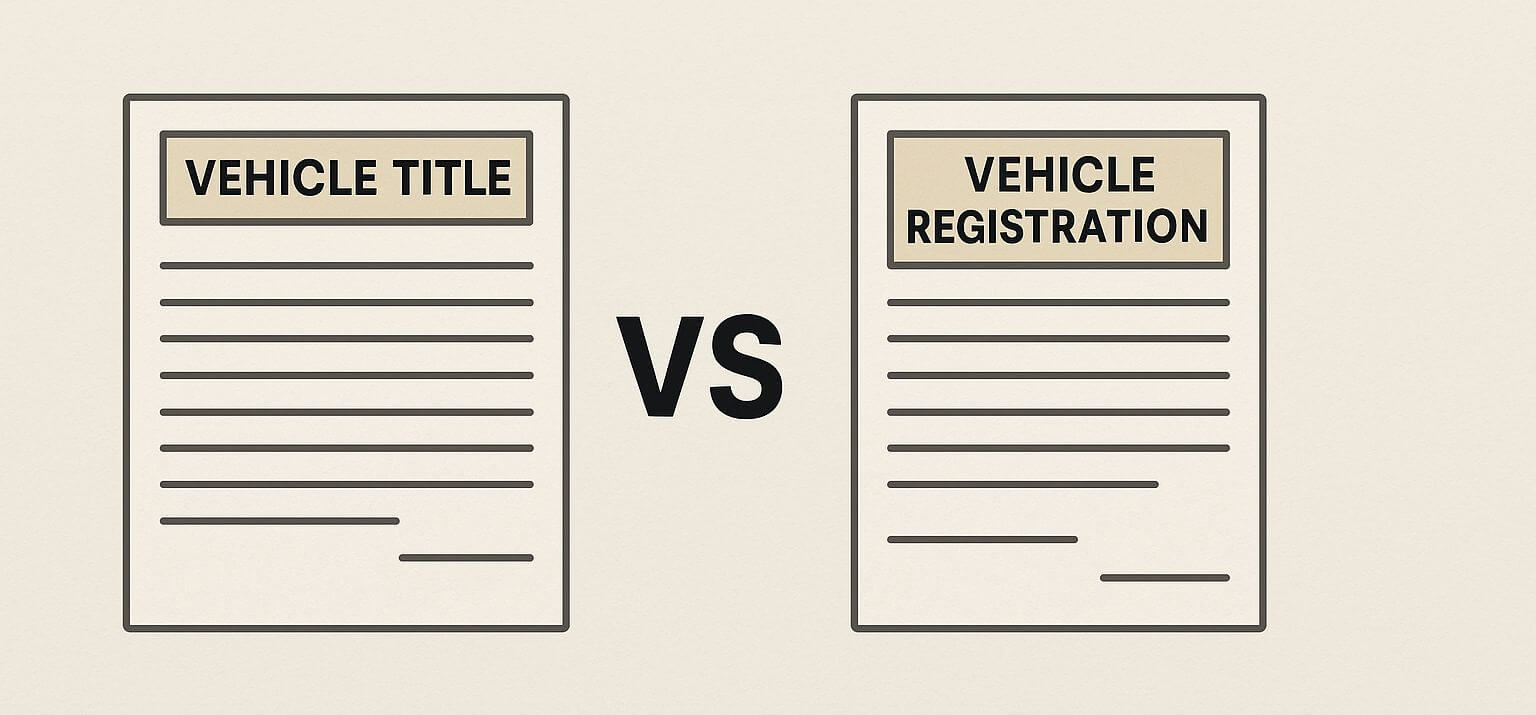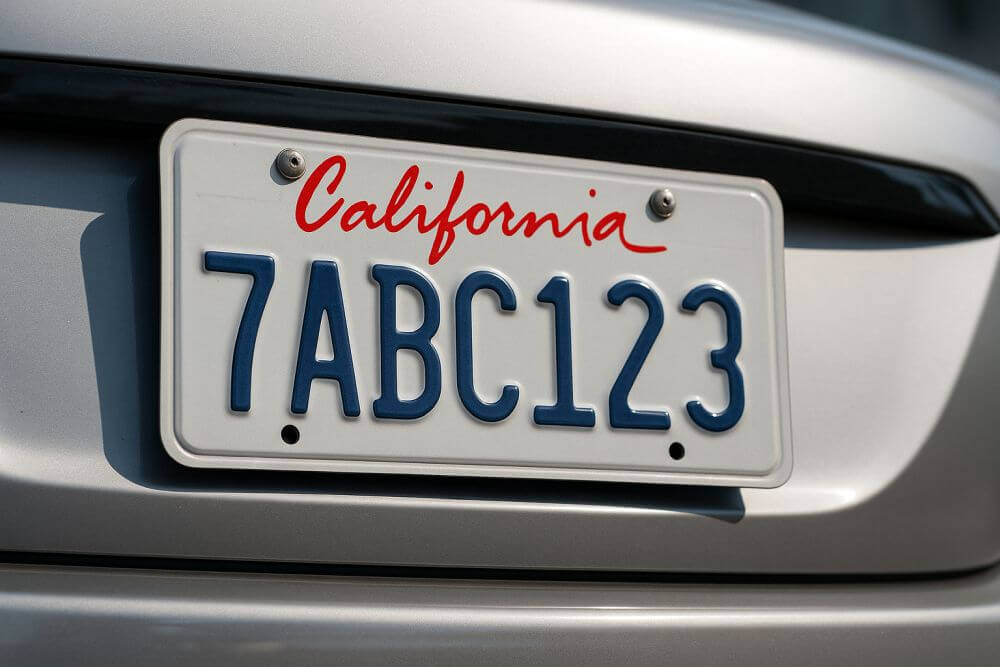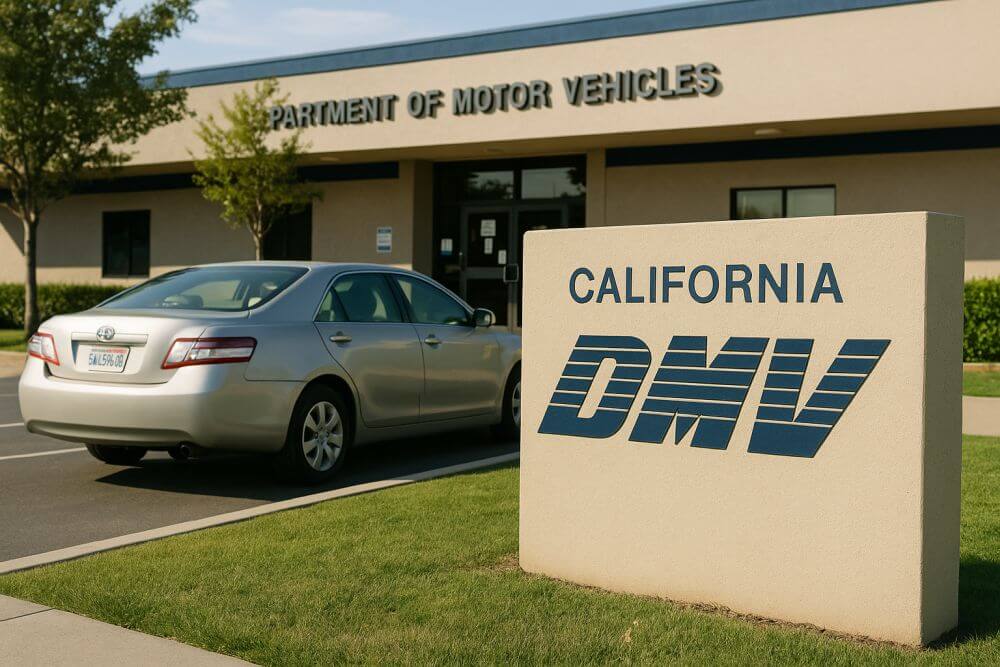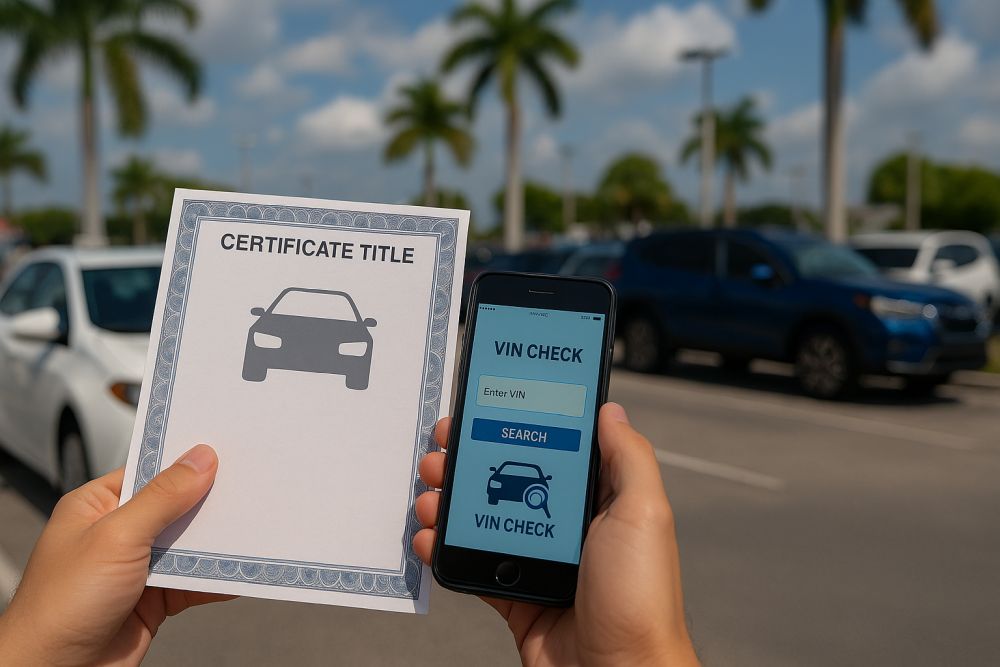When buying, selling, or driving a car in the U.S., you’ll deal with two important documents: the vehicle title and the vehicle registration. They sound similar and often show up together at the DMV, but they serve two very different purposes.

Here’s a simple way to remember it:
- The title proves who owns the car.
- The registration proves the car is allowed on the road.
Let’s break it down so you can understand exactly how these documents work—and why you need both.
What Is a Vehicle Title?
A vehicle title (or “certificate of title”) is the official proof that you own the vehicle. It’s issued by your state’s DMV or motor vehicle agency when you buy a car, pay off a loan, or receive a vehicle through transfer.
Key facts about the title:
- It lists the owner’s name, the VIN (Vehicle Identification Number), and vehicle details like make, model, and year.
- If you financed your vehicle, your lender (bank or credit union) may be listed as a lienholder.
- You need it when selling, transferring, or gifting the car.
- You typically keep it in a safe place at home—not in your glove box.
When do you use it?
- Selling a car? You’ll sign the title over to the buyer.
- Paying off a car loan? You’ll receive a clean title without the lender listed.
- Moving to another state? You’ll usually apply for a new title there.
What Is Vehicle Registration?
Your vehicle registration is what makes your car legal to drive on public roads. It links your car to you in the state’s system and confirms that you’ve paid your road use taxes and passed any required inspections.
Key facts about registration:
- It’s required in every U.S. state.
- You’ll get a registration card, license plates, and a registration sticker (for your plate or windshield).
- It includes info like the vehicle’s VIN, the registered owner’s name, plate number, and the expiration date.
- You’re required to renew it every 1 or 2 years, depending on your state.
When do you use it?
- Every time you drive. You must keep the registration card in your vehicle.
- During traffic stops, vehicle inspections, or applying for parking permits.
- When moving to a new state or updating your address.
Title vs. Registration: Side-by-Side Comparison
| Feature | Vehicle Title | Vehicle Registration |
| Purpose | Proves who legally owns the vehicle | Proves the vehicle is legal to drive |
| Issued By | State DMV when ownership changes | State DMV when registering the vehicle |
| Includes | Owner name, VIN, vehicle info, lienholder (if any) | Owner name, VIN, plate number, registration expiry |
| Kept Where | At home in a secure place | Inside the vehicle (e.g., glove box) |
| Needs Renewal? | No—valid until ownership changes | Yes—typically every 12 months |
| Used For | Selling, transferring, loan payoff | Driving, inspections, police stops |
Why Do People Mix Them Up?
Because both are issued by the DMV and involve vehicle ownership, it’s easy to confuse them. Common mix-ups include:
- Thinking the registration proves ownership—it doesn’t.
- Believing you need to carry the title in the car—you shouldn’t.
- Assuming once you register the car, you don’t need the title anymore—you still do.
Remember: Registration is about the road. Title is about the owner.
What Happens If You Lose One?
Lost Title?
- You’ll need to apply for a duplicate title with your DMV.
- You may have to show ID, vehicle info (like VIN), and pay a fee.
- If it was stolen, file a police report to protect against fraud.
Lost Registration?
- You can request a replacement registration card or sticker online or in person.
- DMV will need your driver’s license, VIN, or plate number.
- Keep the new registration in your vehicle immediately after receiving it.
Real-Life Scenarios
Here are a few examples of how title and registration come into play:
- You’re selling your car: You’ll sign over the title. The buyer will use it to apply for a new title and register the car.
- You bought a used car: You’ll need the signed title to transfer ownership to your name, and then register the car before you drive it.
- You just paid off your car loan: The lienholder will send you the updated title.
- You’re pulled over: You’ll need to show your registration—not your title.
- You moved to another state: You’ll need to re-title and re-register the car in your new state.
Final Thoughts
Owning a car means keeping your paperwork in order. Both the vehicle title and registration are essential, but they serve very different roles.
- The title is your legal proof of ownership.
- The registration is your proof that the car is road-legal.
At VinCheckPro.com, we help you stay informed about your vehicle history, title status, and more—so you can drive with confidence.
Try it now: Free VIN Check – Get Vehicle Title & Registration History


